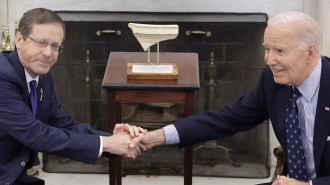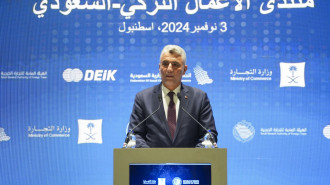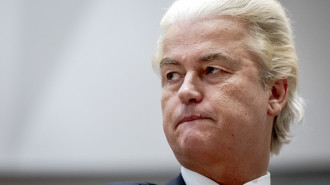IS 'expanding in Libya' despite looming Sirte defeat
In a written testimony delivered to a House panel hearing, US Department of State Special Envoy, Jonathan Winer, told legislators that those IS members who had not been killed in battle have probably "gone underground, forming cells elsewhere in the country".
"We believe they are waiting for opportunities to engage in further attacks in Libya or its neighbours, and if possible to reassert ISIL geographically," he added, using an alternative acronym for the IS group.
Winer also praised Libya's Government of National Accord for having been a "steadfast" partner with the US in the fight against IS, however maintained that the allies must not be complacent about the progress made against the militants.
"The gains against ISIL are real," Winer testified. "But they also could be reversible, if Libyans do not come together to participate in the Government of National Accord and to help it perform its work for the Libyan people and to unify against the common threat to all."
The special envoy added that the fractured situation that allowed IS to gain a foothold in Libya in 2011 still exists today.
Libya's UN-backed GNA government, which launched in May, began its drive to unseat the IS group from its Mediterranean stronghold of Sirte. After some early gains, the battle has slowed rapidly, with the IS group drastically reduced but still putting up stiff resistance.
Government loyalist fighters have blamed the IS group's alleged use of human shields and booby traps in urban areas as being the cause of the current stalemate.
Libya plunged into chaos following the overthrow of longtime dictator Muammar Gaddafi in 2011 by Libyan rebels backed by the US and other Western powers, which left the divided nation with a power vacuum. Since then, Islamist militants, including al-Qaeda and IS, have taken advantage of the country's fragile situation.
Throughout this period, the US has maintained a close interest in Libya, with millions of dollars in aid and military assistance having been spent to assist the country's fledgling government.
According to Winer, President Barack Obama recently requested $148 million in foreign assistance to Libya for 2017 "to provide the United States government with the flexibility necessary to respond quickly to Libya's stabilisation requirements".







 Follow the Middle East's top stories in English at The New Arab on Google News
Follow the Middle East's top stories in English at The New Arab on Google News


